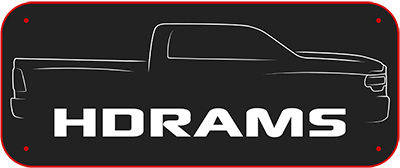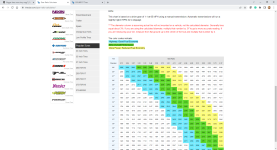Just picked up a 23 3500 HO dually with the 4.10 gearing, I'm considering 255/80R17 (33") or 255/85 (34") "least aggressive tread" tires on the stock wheels. Has anyone had experience with increased hwy MPG with the reduced RPM? I'm assuming the added weight and city driving will offset any gains but thought i would ask what others have experienced.
*edit , I would feel better lowering the RPM @ 70-80 mph in general. With my current setup i only tow about 10k but i have a 3500lb Lance camper in the bed and around 900lb tongue weight towing a 20' enclosed trailer with a jeep inside.
thanks,
*edit , I would feel better lowering the RPM @ 70-80 mph in general. With my current setup i only tow about 10k but i have a 3500lb Lance camper in the bed and around 900lb tongue weight towing a 20' enclosed trailer with a jeep inside.
thanks,
Last edited:

